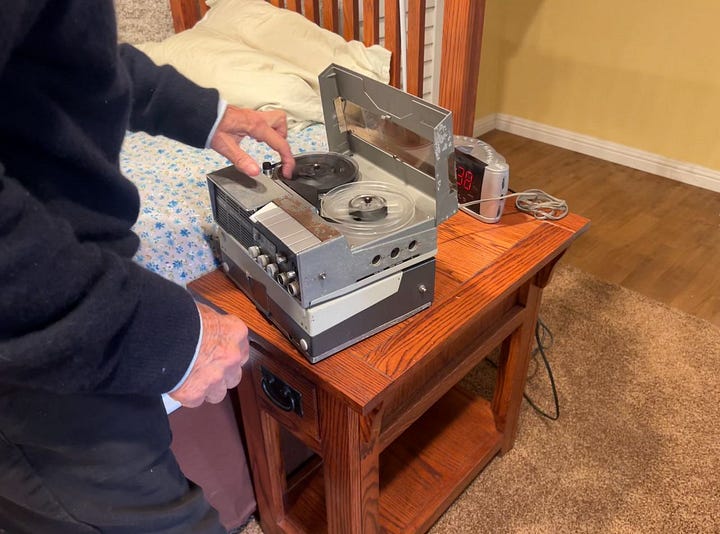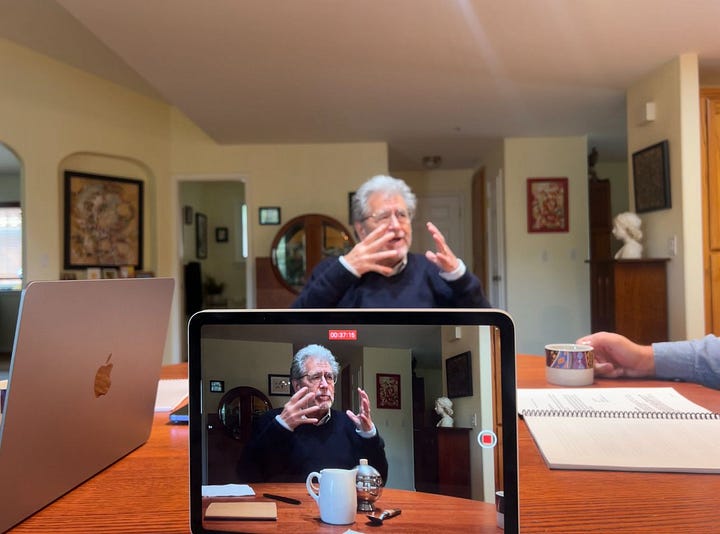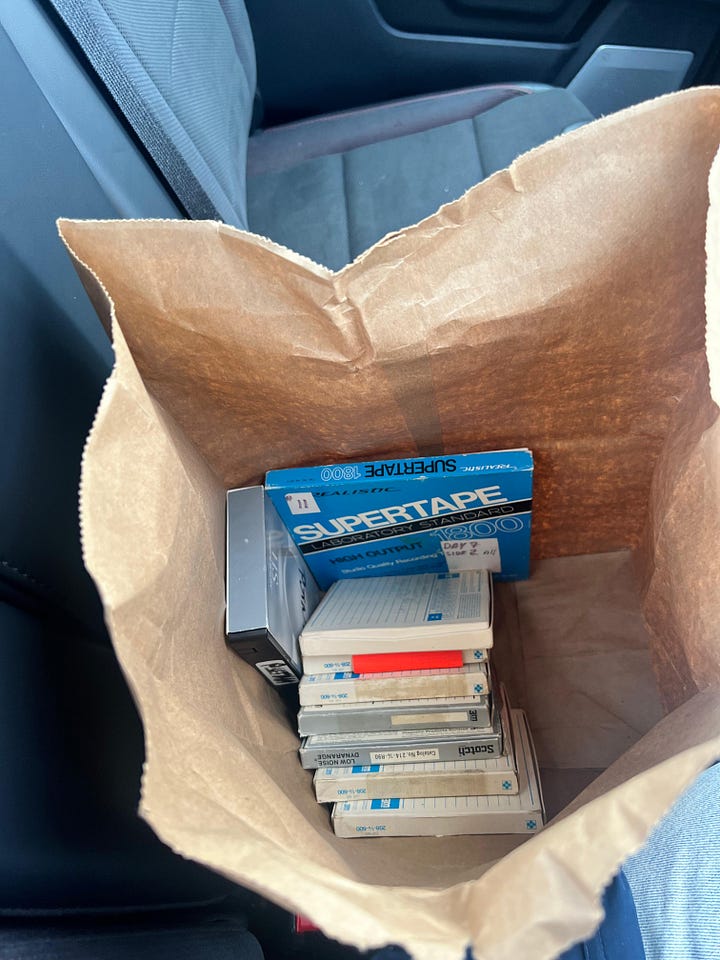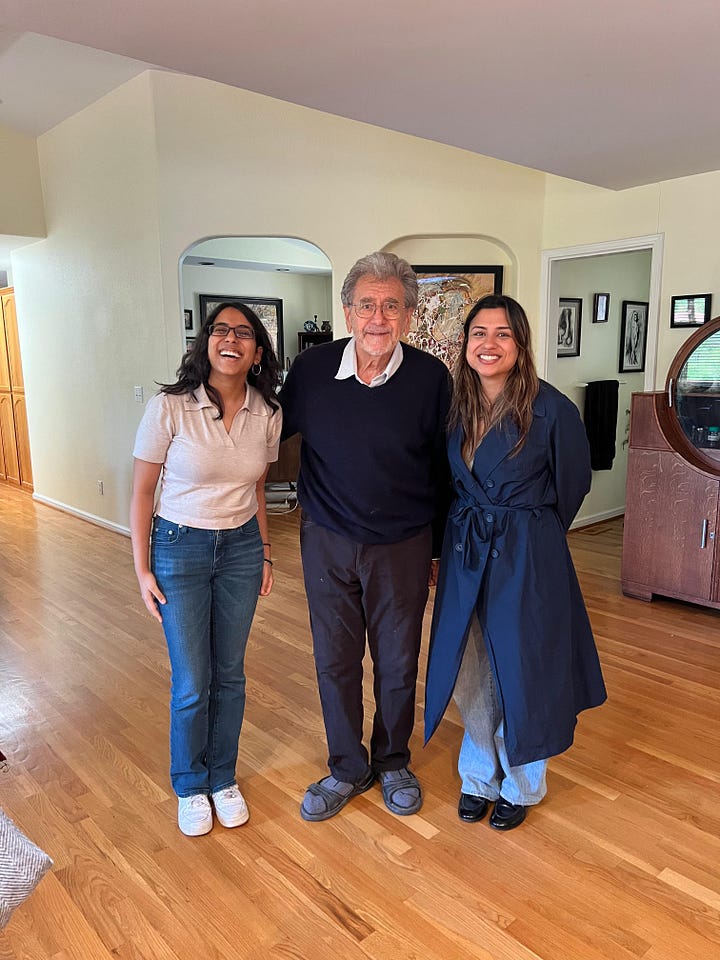Last Week in Links and Books
Notes from my recent visit to America
Note: This blog will return to regularly scheduled programming from next week. In the meantime, if you would like to contribute to my forthcoming piece on good heuristics for Air Quality, consider filling out this short (anonymous) form!
I spent a few days mid-October traveling to New York and the Bay Area. It was an all around delightful time and I managed to squeeze in six new books into my suitcase back home, a problem that Lauren Gilbert summarizes rather accurately:

This trip also proved to be very generative and it seemed worthwhile to compile the links, books, and ideas I collected –
Day 1 was spent reacclimatizing with the New York City public transit system (which truly is one of the best parts of the city despite its many woes) before eating El Salvadorian pupusas in the Bronx.1 Over dinner, I caught up with a friend who has just started as an investigative reporter for the City Journal – the mayoral election makes it a particularly interesting time to write about New York and Adam is finding great stories on issues of urbanism (see, for example, his work on Housing Court Hell).
Day 2 and 3: I mostly hung out around the Columbia campus and enjoyed being a student again.
Surprisingly, many of my conversations with academics included the rising threat of AI in higher education – professors have now fully come to terms with the fact that they cannot reliably discern between student vs machine written essays. Work arounds have included assigning significantly lesser reading (no more full books), the addition of one-on-one spoken conversation as a form of assessment, and a lot more closed-note, blue-book exams. I don’t have judgement to pass, but I am going to leave the rather infamous post from the Atlantic here: the elite college students who can’t read books.
Among the student body however, there was a strong anti-AI sentiment (despite the fact that almost everyone relies on ChatGPT for schoolwork) which seemed downstream of anxieties for the future and uncertainty surrounding the job market, climate change, and energy scarcity. Personally, I think much of this milieu can be tracked back to the anti-tech sentiment in mainstream media (see recent example ).2
Besides arguing (in good fun) with friends and faculty alike, I got to pick up my copy of Mark Mazower’s On Antisemitism: A Word in History. It is an etymological treatment of history that demonstrates how two centuries of rapid change for the Jewish community has seen the meaning of the word ‘antisemitism’ evolve to fit the times. (This is perhaps my favorite review of the book).
Day 4 involved a very interesting side-quest in Templeton, CA.
Over the past three months, Aishwarya and I have been following the story of Peter Putnam, a scientist lost to history: he was a contemporary of Einstein’s and a student of John Wheeler, someone who very much should have been part of the scientific canon but isn’t. His work seems quite interesting too, and from what we have been able to put together so far, it is reminiscent of modern day complexity science. Despite his relevance however, he died as an obscure janitor and his multi-million dollar estate was donated to the nature conservancy.
Getting this work to the public eye seems important and we are trying to find, contextualize, and publish Putnam’s ideas for the modern reader. To that end, we made a four hour drive down from San Francisco to meet a documentary filmmaker and former student of his, Barry Spinello. Now in his late 80’s, Barry has held onto important papers and hours of investigative footage on Putnam for decades. He has very graciously handed us these tapes and we are in the process of getting them digitized – hoping to use the audio as a guide for the actual science.3




If you are a biologist or physicist who would like to read, decipher and comment on Putnam’s papers, or are an individual interested in funding this project, please reach out to Aishwarya.4
Day 5-7 were spent in Berkeley at the Progress Conference. This is where I did most of my book acquiring:
Yuen Yuen Ang, China’s Gilded Age: Following Dan Wang’s Breakneck, which truly is one of the highest impact books of the year, I wanted to do more reading on China. This one came recommended from Michael Hill and talks about how a certain flavor of corruption propelled China further. I am almost certainly going to continue reading about the country and will be using Afra Wang’s China Tech Canon as my guide.
Tangentially: Dan Wang also made a quip during his talk on how “made in China” will become a mark of quality. My own perception on this is divided and it might make for a good future post.
Brian Potter, The Origins of Efficiency: This one is self explanatory, Construction Physics is one of my favorite newsletters.
Tyler Cowen, Stubborn Attachments: I am a strong believer in judging a book by its cover, and this one does not disappoint on either front.
Donald E. Stokes, Pasteur’s Quadrant: Basic Science and Technological Innovation: This selection is mostly a result of my love for Vannevar Bush’s Pieces of the Action, and it digs deeper into the sort of scientific research that leads to technological progress. [I have written two essays inspired by this concept linked here and here].
How Farmers Raise their Kids and Other Essays, an anthology of posts by this year’s Roots of Progress Fellows – I had a fantastic time during the program which was spent in conversation with a remarkable set of individuals! (It also resulted in many good essays and I have linked but a few of my favorites below):
There are other books that I came across and wanted to read but for lack of suitcase space, they will be arriving via amazon later this month:5
Kenneth M. Pollack, Armies of Sand: The Past, Present, and Future of Arab Military Effectiveness
Ramchandra Guha, Makers of Modern India
Jennifer Pahlka, Recoding America: Why Government Is Failing in the Digital Age and How We Can Do Better
William C. Harris & Peter F. Mackey, How to Change the Future: Lessons from Ireland on Revolutionizing Scientific Innovation and Economic Prosperity
Cover image: Asher B. Durand, Progress (The Advance of Civilization), 1853, Virginia Museum of Fine Arts, Richmond.
I was quite surprised with the similarity in cooking technique between a pupusa and a paratha. Reminded me of the saying that every culture has its own stuffed dough dish.
I also had an equally interesting conversation on whether Waymos are good, and while I will not rehash the anti-self-driving car argument, I am leaving these spectacular safety statistics here.
Also grateful to Stuart Buck of the Good Science Project for collaborating on this project.
She can be reached at: aish [at] analoguegroup [dot] org
I have almost certainly forgotten some here — if there is something you think I should read, please email me: hiya [at] mundane [dot] beauty



Couldn't agree more, that bit about academics struggling to tell student from machine work really resonnated; as an AI fan and teacher, it’s a constant thought for me how we adapt to this new paradigm.